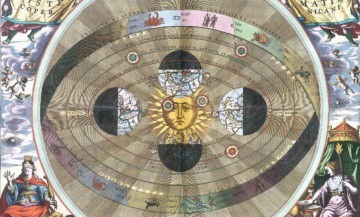Andrew Jewett in The Chronicle of Higher Education:
 Back in 2013, another in a long line of tussles over scientism broke out. Leon Wieseltier, literary editor of The New Republic, told humanities majors at a Brandeis University graduation ceremony that they represented “the resistance” in a society dominated by “the twin imperialisms of science and technology.” Wieseltier sounded all the familiar themes — the enslavement of human beings to machines, the tyranny of numbers, the depredations of “technologism,” the unchallenged dominance of “utility, speed, efficiency, and convenience” in modern culture. The antidote, he claimed, was the humanities.
Back in 2013, another in a long line of tussles over scientism broke out. Leon Wieseltier, literary editor of The New Republic, told humanities majors at a Brandeis University graduation ceremony that they represented “the resistance” in a society dominated by “the twin imperialisms of science and technology.” Wieseltier sounded all the familiar themes — the enslavement of human beings to machines, the tyranny of numbers, the depredations of “technologism,” the unchallenged dominance of “utility, speed, efficiency, and convenience” in modern culture. The antidote, he claimed, was the humanities.
The evolutionary psychologist Steven Pinker fired back. Petulant humanists, he charged, welcomed science when it cured disease but not when it impinged on their professional fiefdom. The march of science and the Enlightenment had vastly improved the human condition. Only science, Pinker insisted, could address “the deepest questions about who we are, where we came from, and how we define the meaning and purpose of our lives.” Humanities scholars would remain irrelevant until they embraced the scientifically informed humanitarianism that constituted the “de facto morality” of the modern world. The ensuing controversy stretched through that summer and fall.
Today a global pandemic grips the world. Societies face immediate, practical, life-or-death questions about how to incorporate science and expertise into their collective decisions. And yet the old refrains can still be heard. In Commentary, the conservative commentator Sohrab Ahmari argued that “the ideology of scientism” has plunged the world into “a half-millennial funk.” In the face of a deadly virus, Ahmari wrote, moderns lack any sense of why “life is worth living and passing on”; they cannot even assert that “being is preferable to nonbeing.” Pinker chimed in as well, arguing that political decisions favoring economic well-being over bodily health reflected the “malignant delusion” of evangelicals’ “belief in an afterlife,” which “devalues actual lives.”
And so the tired, decades-old pattern continues.
More here.
